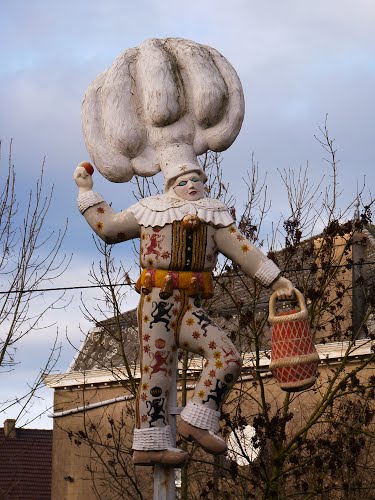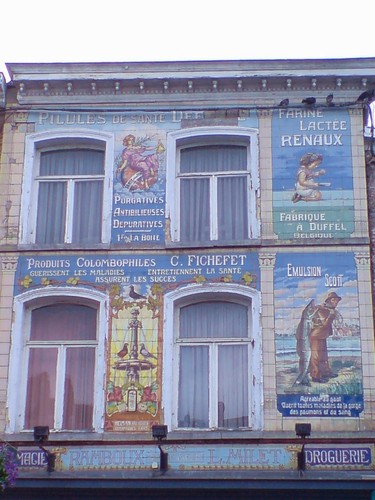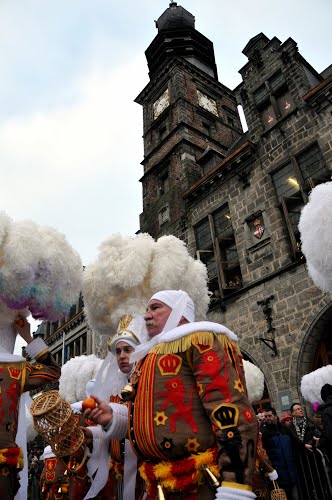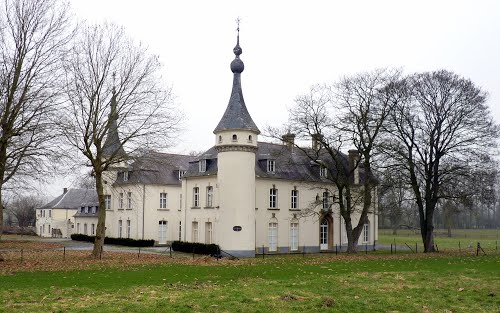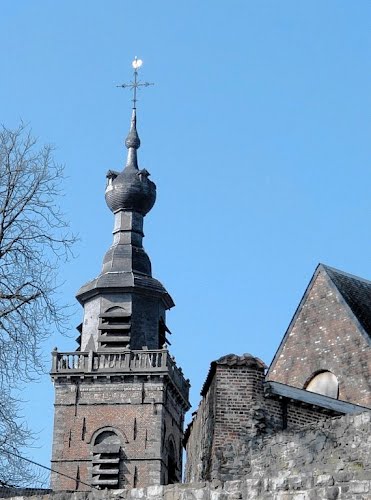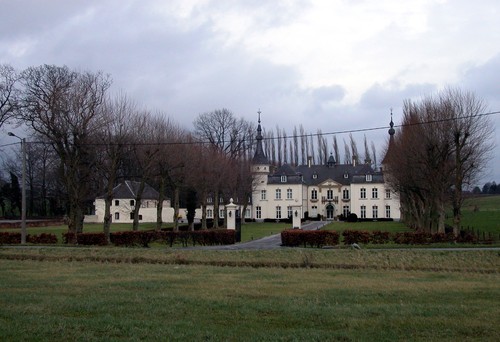Binche is a Walloon municipality located in the Belgian province of Hainaut. On January 1, 2006, Binche had a total population of 32,409. The total area is 60.66 km² which gives a population density of 534 inhabitants per km². Since 1977, the municipality of Binche has gathered the town of Binche itself with seven old municipalities - Bray, Buvrinnes, Epinois, Leval-Trahegnies, Peronnes-lez-Binche, Ressaix and Waudrez.
The motto of the city is "Plus Oultre" (meaning "Further" in Old French), which was the motto of Holy Roman Emperor Charles V, who in 1545 gave the medieval Castle of Binche to his sister, Queen Mary of Hungary (governor of the Netherlands). She lavished attention on Binche, which she had rebuilt under the direction of an architect-sculptor Jacques du Broeucq, remembered today as the first master of Giambologna. The chateau, intended to rival Fontainebleau, was destroyed by the soldiers of Henry II of France in 1554.
In 2003, the Carnival of Binche was proclaimed one of the Masterpieces of the Oral and Intangible Heritage of Humanity by UNESCO.
Carnival of Binche
The carnival of Binche is an event that takes place each year in the Belgian town of Binche during the Sunday, Monday, and Tuesday preceding Ash Wednesday. The carnival is the best known of several that take place in Belgium at the same time and has been proclaimed as a Masterpiece of the Oral and Intangible Heritage of Humanity listed by UNESCO. Its history dates back to approximately the 14th century.
Events related to the carnival begin up to seven weeks prior to the primary celebrations. Street performances and public displays traditionally occur on the Sundays approaching Ash Wednesday, consisting of prescribed musical acts, dancing, and marching. Large numbers of Binche's inhabitants spend the Sunday directly prior to Ash Wednesday in costume.
The centrepiece of the carnival's proceedings are clown-like performers known as Gilles. Appearing, for the most part, on Shrove Tuesday, the Gilles are characterised by their vibrant dress, wax masks and wooden footwear. They number up to 1,000 at any given time, range in age from 3 to 60 years old, and are customarily male. The honour of being a Gille at the carnival is something that is aspired to by local men. From dawn on the morning of the carnival's final day, Gilles appear in the centre of Binche, to dance to the sound of drums and ward off evil spirits with sticks. Later during the day, they don large hats adorned with ostrich plumes, which can cost more than $300 US dollars to rent, and march through the town with baskets of oranges. These oranges are thrown to, and sometimes at, members of the crowd gathered to view the procession. The vigour and longevity of the orange-throwing event has in past caused damage to property – some residents choose to seal windows to prevent this. The oranges are considered good luck because they are a gift from the Gilles and it is an insult to throw them back.




